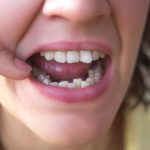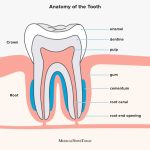Why Alcoholics Gag When Brushing Teeth: Explained

The feeling of nausea and gagging when brushing teeth is a common experience for many individuals, but it can be particularly troublesome for those struggling with alcohol addiction. This phenomenon is often referred to as \brushing-induced vomiting\ or \gag reflex,\ and it can be an unpleasant and uncomfortable experience that can make maintaining oral hygiene more difficult. However, understanding the underlying reasons for this reaction can help individuals take steps to mitigate the effects and maintain their oral health. Alcoholics are particularly prone to gagging when brushing teeth due to a variety of factors, including the effects of alcohol on the body and the state of their overall oral health. Alcohol is a potent irritant that can damage the lining of the stomach and esophagus, leading to inflammation and sensitivity that can trigger the gag reflex. Additionally, many individuals struggling with alcohol addiction may have poor oral hygiene and dental health, which can exacerbate the effects of brushing and increase the likelihood of gagging. Understanding these factors can help individuals take steps to improve their oral hygiene and minimize the discomfort associated with brushing teeth.
Alcoholics can experience a gag reflex when brushing their teeth due to a variety of factors. Firstly, alcohol is known to cause damage to the liver and kidneys, which can lead to a build-up of toxins in the body. This can affect the nerve endings in the throat, making it more sensitive and prone to triggering a gag reflex. Furthermore, alcohol can also cause dehydration, which can lead to dry mouth and a lack of saliva. This can make it more difficult to swallow and can also make the throat more sensitive to stimulation. Finally, alcohol can also affect the muscles in the throat, making them more prone to involuntary contractions and spasms. All these factors combined can lead to a heightened sensitivity in the throat, making it more difficult for alcoholics to brush their teeth without gagging.
Understanding the underlying causes of a particular phenomenon is crucial in devising effective strategies to address it. This is especially true in the case of alcoholism, where the physical and psychological effects of alcohol consumption can impact a person’s health and well-being. In the article titled \Why Alcoholics Gag When Brushing Teeth Explained,\ the author highlights the importance of understanding the root causes of this seemingly innocuous symptom. By exploring the physiological and psychological factors that contribute to this reaction, researchers may be able to develop targeted interventions and treatments that can help alcoholics overcome their addiction and improve their overall quality of life. Ultimately, understanding the causes behind alcoholism and related symptoms is essential in creating a more informed and effective approach to treating this complex and challenging condition.
Factors Contributing to Gag Reflex during Toothbrushing
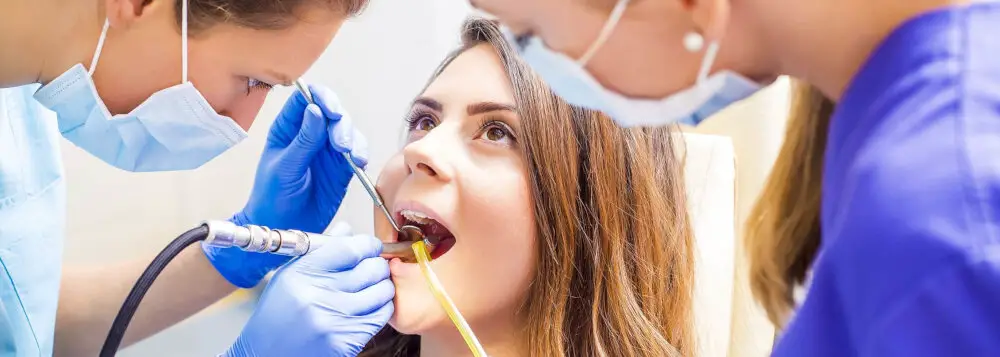
The gag reflex is a natural physiological reaction that occurs in response to certain stimuli, such as the back of the throat being touched or the presence of unpleasant tastes or smells. When it comes to toothbrushing, several factors can contribute to the gag reflex being triggered. One of the most common is the use of a toothbrush that is too large or has bristles that are too stiff. This can cause the brush to come into contact with the back of the throat, which can be very uncomfortable and trigger the gag reflex. Similarly, using too much toothpaste or brushing too forcefully can also lead to the gag reflex being triggered. In addition, anxiety or stress can also make the gag reflex more sensitive, which is why alcoholics may be more prone to gagging when brushing their teeth. Another factor that can contribute to the gag reflex during toothbrushing is a heightened sensitivity to certain tastes or smells. This can be particularly common in individuals who have a history of alcohol abuse, as alcohol can alter the way the brain perceives taste and smell. In such cases, even the taste or smell of toothpaste or mouthwash can be enough to trigger the gag reflex. Similarly, individuals with certain medical conditions, such as acid reflux or gastroesophageal reflux disease (GERD), may also be more prone to gagging during toothbrushing due to the presence of stomach acid in the mouth. Overall, understanding the factors that contribute to the gag reflex during toothbrushing can help individuals take steps to minimize discomfort and improve their oral hygiene habits.
The gag reflex, also known as the pharyngeal reflex, is a natural physiological response that occurs when the back of the throat is stimulated, such as when objects touch the soft palate, uvula, tonsils, or back of the tongue. This reflex is a crucial protective mechanism that helps prevent choking, swallowing foreign objects, and aspiration of food or fluids into the lungs. The sensory input from the throat travels through the glossopharyngeal nerve and triggers a reflex response that causes the muscles of the throat to contract and push the offending object out of the mouth. However, certain triggers can cause an exaggerated or hypersensitive gag reflex, such as in alcoholics who experience nausea and vomiting when brushing their teeth due to the stimulation of the gag reflex by the toothbrush.
Alcoholism can have a significant impact on the gag reflex, making it more sensitive and prone to triggering. This is because excessive alcohol consumption can damage the nerves and muscles responsible for controlling the reflex, making them less effective. As a result, even simple tasks like brushing teeth or swallowing pills can become uncomfortable or even impossible for some alcoholics. Additionally, alcohol can irritate the lining of the mouth and throat, causing inflammation and swelling that can further exacerbate the gag reflex. Over time, chronic alcohol abuse can cause permanent damage to the body, including irreversible damage to the gag reflex.
Alcoholism can lead to a sensitivity of the throat muscles, causing individuals to gag when performing simple tasks such as brushing their teeth. This sensitivity can be attributed to the damage that excessive alcohol consumption can cause to the nervous system, including the nerves that control the muscles in the throat. As a result, the throat muscles become more easily stimulated and can react strongly to even minor stimuli, such as the slight pressure of a toothbrush. This sensitivity can be a warning sign of more serious health problems and should be addressed with a healthcare professional to prevent further damage.
Psychological factors such as anxiety and fear can greatly impact an individual’s ability to perform everyday tasks, and for alcoholics, this can manifest in a particularly unpleasant way. For many alcoholics, the simple act of brushing their teeth can trigger a gag reflex, leading to discomfort and even vomiting. This response is thought to be related to the anxiety and fear that often accompanies alcoholism, as well as the physical effects of alcohol on the body. As the body becomes accustomed to the presence of alcohol, it can become hypersensitive to any stimuli that might be perceived as a threat, including the act of brushing teeth. Overcoming this response requires addressing both the psychological and physical components of the addiction, and finding ways to reduce anxiety and fear while also detoxifying the body.
Tips to Reduce Gag Reflex during Toothbrushing for Alcoholics
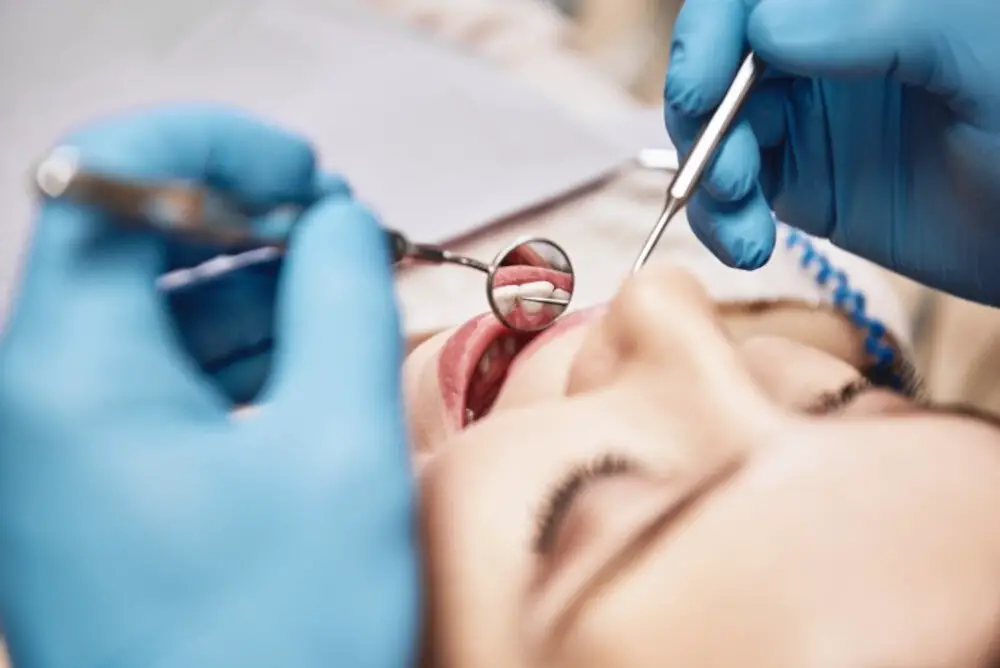
Gag reflex during toothbrushing can be a significant problem for alcoholics who struggle with addiction. The reason behind the gag reflex is due to the damage caused by alcohol to the mouth and throat tissues. The mouth tissues become dry and irritated, making them more sensitive to touch, which leads to the gag reflex. However, there are some tips that can help reduce the gag reflex during toothbrushing for alcoholics. Firstly, try to relax and breathe through your nose while brushing. This will help to reduce anxiety and keep the mouth and throat relaxed. Secondly, use a soft-bristled toothbrush and brush gently. By using a soft-bristled toothbrush, the mouth and throat tissues will not be irritated, and the gag reflex will be reduced. Another tip to reduce the gag reflex during toothbrushing for alcoholics is to use a fluoride mouthwash before brushing. The fluoride mouthwash will help to lubricate the mouth and throat tissues, making them less sensitive to touch. Additionally, the fluoride in the mouthwash will help to strengthen the teeth and reduce the risk of tooth decay. It is also important to avoid brushing the tongue as this can trigger the gag reflex. Instead, gently scrape the tongue with a tongue scraper or use a mouthwash specifically designed for tongue cleaning. By following these tips, alcoholics can reduce the gag reflex during toothbrushing and improve their oral health.
Breathing techniques can be incredibly helpful in calming the throat muscles, particularly for those who experience gagging while brushing their teeth due to alcoholism. One effective method is diaphragmatic breathing, which involves taking slow, deep breaths from the diaphragm rather than shallow chest breaths. This allows the body to relax and reduces tension in the throat muscles. Another technique is pursed lip breathing, where the individual inhales slowly through their nose and exhales through pursed lips, as if blowing out a candle. This creates resistance in the airway, promoting relaxation and reducing the urge to gag. By incorporating these breathing techniques into daily routines, individuals with alcoholism can alleviate their discomfort while brushing their teeth and improve their overall quality of life.
Along with therapy and medication, distraction techniques can help reduce anxiety in individuals. These techniques involve focusing on something else, such as a hobby, exercise, or deep breathing exercises, to divert attention away from anxious thoughts. Mindfulness meditation, where one focuses on the present moment without judgment, can also be helpful. Other techniques include listening to music, taking a warm bath, or engaging in activities that require concentration, such as puzzles or reading. It is important to find what works best for each individual and incorporate these techniques into a daily routine to manage anxiety effectively.
The use of specialized toothbrushes and toothpaste can greatly benefit individuals with specific dental needs, such as those who suffer from alcoholism. Alcohol abuse can cause damage to the teeth and gums, leading to an increased risk of gum disease and tooth decay. Specialized toothbrushes, such as those with soft bristles or angled heads, can help to prevent further damage to the gums and enamel. Toothpaste designed for sensitive teeth or those containing fluoride can also aid in strengthening and protecting the teeth. However, it is important to note that while these products can be helpful, individuals struggling with alcoholism should seek professional help to address the root cause of their dental issues.
Gradual desensitization to toothbrushing is a technique that can be used to help those who experience gagging or discomfort when brushing their teeth, particularly alcoholics. This method involves slowly introducing the toothbrush into the mouth and gradually increasing the time spent brushing over several sessions. The individual is encouraged to focus on their breathing and relaxation techniques while brushing to reduce anxiety and tension in the throat and mouth muscles. Over time, this desensitization process can help the individual become more comfortable with toothbrushing and reduce the likelihood of gagging or discomfort. It is important to note that this technique should be done under the guidance of a healthcare professional to ensure safe and effective implementation.
Importance of Oral Hygiene for Alcoholics

Maintaining good oral hygiene is crucial for everyone, and even more so for alcoholics. Alcoholism can have a detrimental effect on oral health, leading to a range of dental problems such as gum disease, tooth decay, and oral cancers. Alcoholics are at a higher risk of developing these dental problems due to their poor diet, dehydration, and weakened immune system. Neglecting oral hygiene can also lead to the development of bad breath, which can further exacerbate the social isolation that many alcoholics experience. Therefore, it is essential for alcoholics to be vigilant about their oral hygiene practices to prevent these dental problems from worsening. However, many alcoholics find it challenging to maintain good oral hygiene, and one of the reasons is the gag reflex. Brushing teeth can trigger the gag reflex, which can cause discomfort and even vomiting in some cases. This can be due to the heightened sensitivity of the gag reflex in alcoholics, as well as the physical changes that occur in the mouth due to alcoholism. Therefore, it is crucial for alcoholics to adopt alternative oral hygiene practices such as using mouthwash, flossing, and gargling with salt water to maintain good oral health without triggering the gag reflex. Seeking professional dental care is also essential for alcoholics to manage their dental problems effectively and prevent them from worsening.
Alcoholism can have a significant impact on oral health, increasing the risk of several dental problems. Heavy drinking can cause dry mouth, which can lead to the buildup of harmful bacteria and plaque on teeth. Alcohol consumption can also erode tooth enamel, leading to tooth decay, sensitivity, and discoloration. Additionally, alcoholism can weaken the immune system, making it harder for the body to fight off infections in the mouth, such as gum disease and oral thrush. These oral health problems can be painful and expensive to treat, and may require more frequent dental visits. Therefore, it is crucial for individuals struggling with alcoholism to prioritize their oral health and seek professional help to overcome their addiction.
Regular dental checkups are crucial for maintaining good oral health. These appointments allow dentists to identify any potential issues early on, such as cavities, gum disease, or even oral cancer. By catching these problems before they progress, patients can avoid more extensive and costly treatments in the future. Additionally, dental checkups provide an opportunity for dentists to clean and polish teeth, removing any buildup of plaque or tartar that can lead to decay and bad breath. For individuals struggling with alcohol addiction, regular dental checkups can be especially important as heavy drinking can lead to a host of oral health issues, including enamel erosion, dry mouth, and gum disease. Regular dental visits can help manage and prevent these issues, improving overall oral health and quality of life.
Maintaining good oral hygiene is essential for preventing various dental problems, including bad breath, gum disease, and tooth decay. The first step towards good oral hygiene is brushing your teeth twice a day with fluoride toothpaste. It is important to brush all surfaces of your teeth, including the back and tongue. Flossing daily is also crucial for removing food particles and plaque from between teeth. Additionally, using mouthwash can help kill bacteria and freshen your breath. It is also important to limit sugary and acidic foods and drinks, as they can erode tooth enamel. Regular visits to the dentist for cleanings and check-ups can also help maintain good oral hygiene.
In the article \Why Alcoholics Gag When Brushing Teeth Explained,\ it is explained that alcohol consumption can lead to an over-sensitivity of the gag reflex. This can result in difficulty performing everyday tasks such as brushing teeth or swallowing pills. The reason for this is that alcohol can irritate the soft palate and throat, leading to inflammation and a heightened response from the gag reflex. Additionally, heavy alcohol use can cause damage to the nerves that control the gag reflex, making it even more sensitive. These effects can persist even after a person stops drinking, making it important to seek medical attention if this problem persists. Overall, this article sheds light on a common issue faced by those struggling with alcohol addiction and emphasizes the importance of seeking help to address the underlying problem.
Alcoholism is a chronic disease that can have serious consequences on an individual’s health, including oral health. Seeking professional help is crucial to overcoming this addiction and reducing the negative effects it has on the body. Alcohol abuse can lead to a variety of oral health problems, including dry mouth, gum disease, tooth decay, and even oral cancer. These issues can be compounded by the physical act of brushing teeth, which can trigger a gag reflex in those who consume excessive amounts of alcohol. Professional help can provide individuals with the tools and support they need to overcome addiction and minimize the impact it has on their oral health.
Maintaining good oral hygiene is crucial for overall health and well-being, but for alcoholics, it can be a challenge due to the gag reflex caused by excessive alcohol consumption. However, it is important to overcome this difficulty and continue practicing good oral hygiene to prevent dental problems and maintain a healthy mouth. Regular brushing, flossing, and dental check-ups can help prevent cavities, gum disease, and other oral health issues. It may be helpful to seek support from a dentist or healthcare professional who can offer guidance and advice on how to overcome the gag reflex and maintain good oral hygiene habits. With dedication and perseverance, it is possible to achieve and maintain a healthy, beautiful smile.
Conclusion
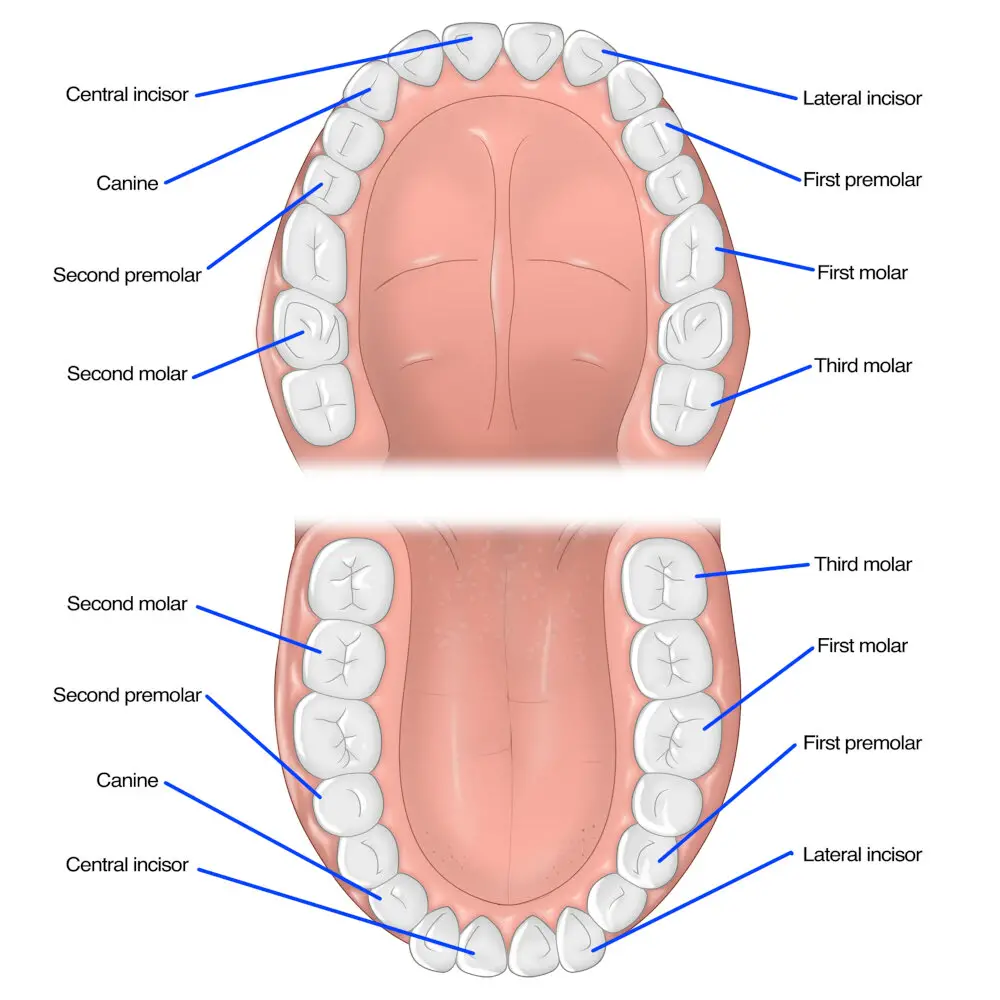
In conclusion, the phenomenon of alcoholics gagging while brushing their teeth can be explained by a combination of factors. Firstly, alcohol can act as a muscle relaxant, including the muscles involved in swallowing and gag reflex. This can make the gag reflex more sensitive and trigger it more easily. Secondly, alcohol can irritate the stomach lining, causing nausea and vomiting sensations. Finally, poor oral hygiene and dental health often go hand in hand with alcoholism, and the act of brushing teeth can unintentionally trigger the gag reflex due to the buildup of bacteria and plaque. Understanding the reasons behind this issue can help individuals struggling with alcoholism to take better care of their oral health and seek appropriate treatment for their addiction.



